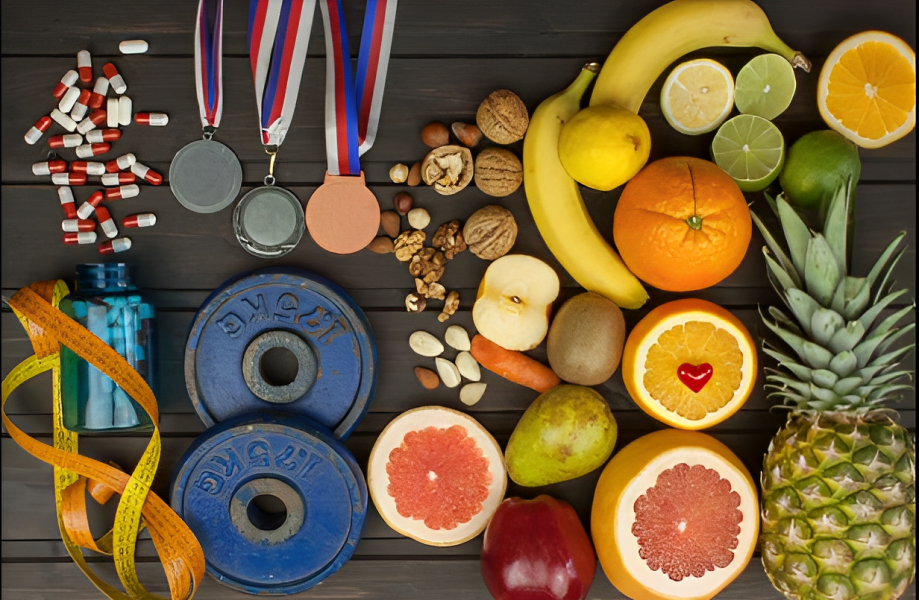McGill hosted the 2023 Trottier Public Science Symposium, “Ready, Set, Go! Use and Abuse of Science in Sport,” on Sept. 13-14 in Moyse Hall. The symposium featured talks by renowned experts who offered their perspectives on nutrition and the broader role of science in sports.
One of the talks was “Food for Thought: Tackling Nutrition Science for Sport Performance” by Elizabeth Mansfield, adjunct professor at McGill’s School of Human Nutrition, who specializes in sports nutrition.
Are dietary nitrate supplements your friend?
Mansfield began the presentation by discussing a popular claim about the role of dietary nitrates in athletics. These compounds are often found in foods like beets, rhubarb, and spinach.
“[Experts say that] dietary nitrates make muscles more efficient and improve sprint performance and reaction time,” Mansfield said.
Although Mansfield agreed with this finding, she expressed concern about the subsequent development of nitrate supplements, such as beet shots, which in turn affected people’s food choices. Instead of opting for minimally processed nitrate-rich foods, which generally contain a wide range of other beneficial nutrients, Mansfield argued that the sports nutrition industry has pushed athletes to choose supplements containing only nitrates.
“As a food-first nutritionist, I would say you are probably going to be better off trying to eat it, chew it, and make it part of your regular plan,” Mansfield said. “Certainly, it’s not just beets; it’s probably a lot of different types of vegetables that you can benefit from eating.”
The importance of staying hydrated
Mansfield then highlighted the importance of adequate hydration in sports performance. This was what she described as “the first thing” she looks at in terms of overall health and performance.
“For most of us, if we are working out decently hard for one to two hours, we would want to have two cups of water with a dash of salt and a bit of maple syrup before each workout,” Mansfield explained. “After the workout, we want to have some water, foods that contain salt, and some wet foods.”
Despite water being the beverage of choice, coffee and tea count as well. Mansfield deconstructed ideas and misinformation about fluid balance, which ensures that the amount of fluids that someone intakes and excretes are the same. Coffee and tea, she explained, are not dehydrating fluids, contrary to popular belief.
Refuelling the body after a workout
Mansfield also elaborated on the eating schedule that could optimize energy levels during a training session. She suggested eating and drinking three to four hours before training for best results.
“You might need to have a snack up to two hours before training. And you might even need a top-up 30 minutes before training, particularly if it’s going to be a long and hard training session,” Mansfield said.
Refuelling the body after the workout is as important as fueling it before the workout. She outlined a schedule for ensuring the body has the nutrients it needs to perform well, including eating carbohydrates within half an hour of finishing a workout if you are planning to complete multiple workouts in a single day.
The role of protein in staying energized
Protein also plays a key role in athletes’ diets, but Mansfield explained that it’s important to be strategic about protein intake. One important component of protein intake is leucine, an amino acid that stimulates muscle protein synthesis post-workout.
“It’s like a light switch that turns the muscles on,” Mansfield explained.
Mansfield recommended aiming for 30 grams of protein per meal and distributing protein-rich foods throughout the day. She also discussed caution around relying on protein shakes.
“Protein shakes do not have a lot of carbohydrates in them,” Mansfield said. “You need three times the amount of carbohydrate-rich foods compared to protein-rich foods to actually get the refuelling process going.”
Overall, Mansfield’s talk dispelled common misconceptions and deepened the audience’s understanding of sports nutrition, helping to ensure health and performance for athletes and the public alike.






